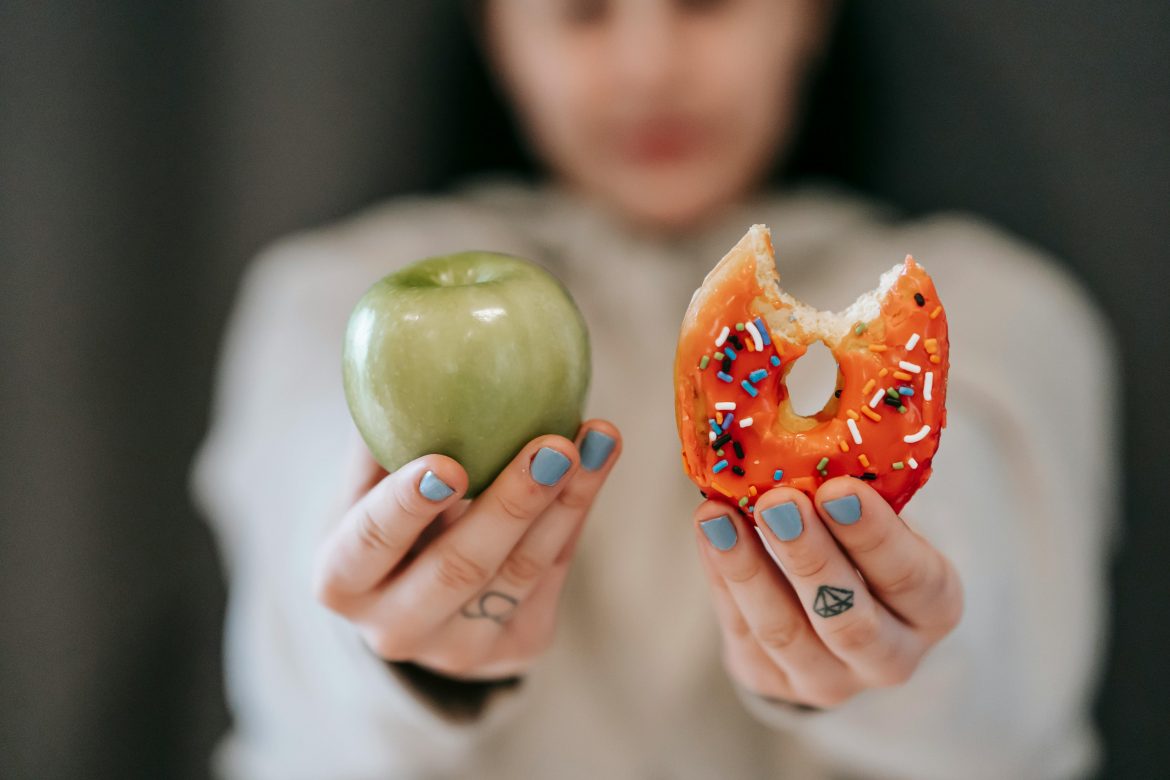Cravings. When you swore you had your fill at dinner, but a craving for something sweet hits you a couple of hours later. Or, you’ve been super happy with your new, health-focused meals (with the cheat snack in between), but suddenly, one Wednesday afternoon, you’re craving the greasiest junk food you can get your hands on.
You might tell yourself it’s a lack of discipline, a weakness, but the truth? Cravings aren’t random or out to throw your body out of whack. They’re messages your body is desperately trying to send you. Once we understand our cravings, we stop fighting our bodies – learning to understand them better instead.
In this article, we cover what your cravings might be signalling to you, and what to feed them instead to leave you energised instead of in that well-known cycle of craving, crashing, and craving again.
What your cravings mean
Craving something sweet
At the basic level, sugar is what our bodies, especially our brains, need to survive. However, if your diet consists mainly of sugars, even the healthy stuff like flavoured yoghurt, muesli bars, cereal, or fruit juices, your blood sugar is in a constant state of shooting up and crashing. And on top of that, sugar is a drug like no other.
Research has shown that sugar hijacks the part of the brain that rewards you with dopamine, making you feel good. Simply put, every time you have sugar, your brain remembers and will ask for it again, especially when you’re tired or stressed.
Instead of eating sugars that are quickly used up in the body, consider swapping those foods out for low GI alternatives, packed with longer-lasting sugars, fats, and proteins. Balance your meals with protein and fibre to help sustain your blood sugar levels until your next meal or snack.
Craving something fatty or greasy
When your body craves fatty foods (i.e. anything deep-fried or smothered in cream and butter), it is trying to signal that you need certain fat-soluble vitamins, namely vitamin A, K, D, and E. Taking a closer look at these, you’ll uncover that they are vital for supporting your immune system, stabilising blood sugar levels, and determines how your body stores and uses calcium.
Fat-soluble vitamins are naturally found in whole foods like nuts, seeds, avocado, oily fish, and whole animal products, and are commonly referred to as good fats. Unfortunately, more often than not, we’re exposed to non-whole food sources of fats, like processed foods that contain high amounts of hydrogenated oils and trans fats.
Instead of falling into this trap, and starving your body of the crucial vitamins it needs, avoid the overly processed snacks and take-away foods and instead, include a healthy amount of quality whole food fats with every meal.
Craving something salty
When it’s not something sweet or fatty, your body might start craving something salty. It might be chips or biltong. Or a satisfyingly salty cheese and cold meats sarmie. When your body craves salt, it is often linked to high stress levels or a lack of minerals. If your immune system has taken a dip, you’ve recently been ill, or overly stressed, your body has most likely burned through important minerals like magnesium, sodium, and potassium (among others).
Sodium and magnesium are crucial minerals that keep your nerves calm and your muscles working properly, and when these stores are depleted, salty cravings kick in. Make sure you’re feeding your body meals and snacks containing magnesium, sodium, and potassium to keep these stores from depleting, especially if you’re suffering from illness, anxiety and stress.
Craving something starchy
When it’s raining, it’s cold, or you’re feeling a little down or homesick, your body might shout that it needs carbs, starch and all the comfort foods. It’s not a weakness, just your brain trying to get the nutrients it needs and help soothe you.
When digested, carbs and starchy foods actually turn into sugars. And, instead of helping to produce dopamine, these sugars help produce serotonin – a feel-good chemical that calms you and lifts your spirits. It makes perfect sense that your body craves these foods when life gets a little too life-y.
Instead of reaching for overly processed and refined carbs, consider whole foods that contain essential nutrients that help provide the serotonin your brain needs to lift your mood, but also that help sustain your health until your next meal.
What to eat instead
Pair each craving with these ‘smart swaps’ to satisfy the underlying need without the energy crash:
Sugar
- Move past the refined, processed sweet treats
- Instead, choose: fresh fruits, nuts & seeds, nut butters, dark chocolate, dried fruit, stewed fruit with yoghurt, fruit rollups
Salt
- Choose to hydrate your body with nutrient-dense foods
- Consider: Air-popped popcorn, roasted chickpeas, edamame, olives, nuts, homemade savoury snacks
Fatty foods
- Ditch the trans fats for healthy, low GI, good fats at every meal
- Choose: avocado toast, trail mix, salmon, tuna, air-fried chips
Cravings aren’t a lack of willpower; they’re your body’s built-in communication centre. When you learn how to decode these messages, you’ll not only better fuel your body, but also learn to build a nutritious and filling meal plan that will keep your immune system strong, your muscles functioning efficiently, and your moods balanced. Cravings don’t signal harsh diets, just more time spent listening to your body (and treating it to what it needs most).
Also See: How sleep deprivation can contribute towards weight and cravings
How sleep deprivation can contribute towards weight and cravings

